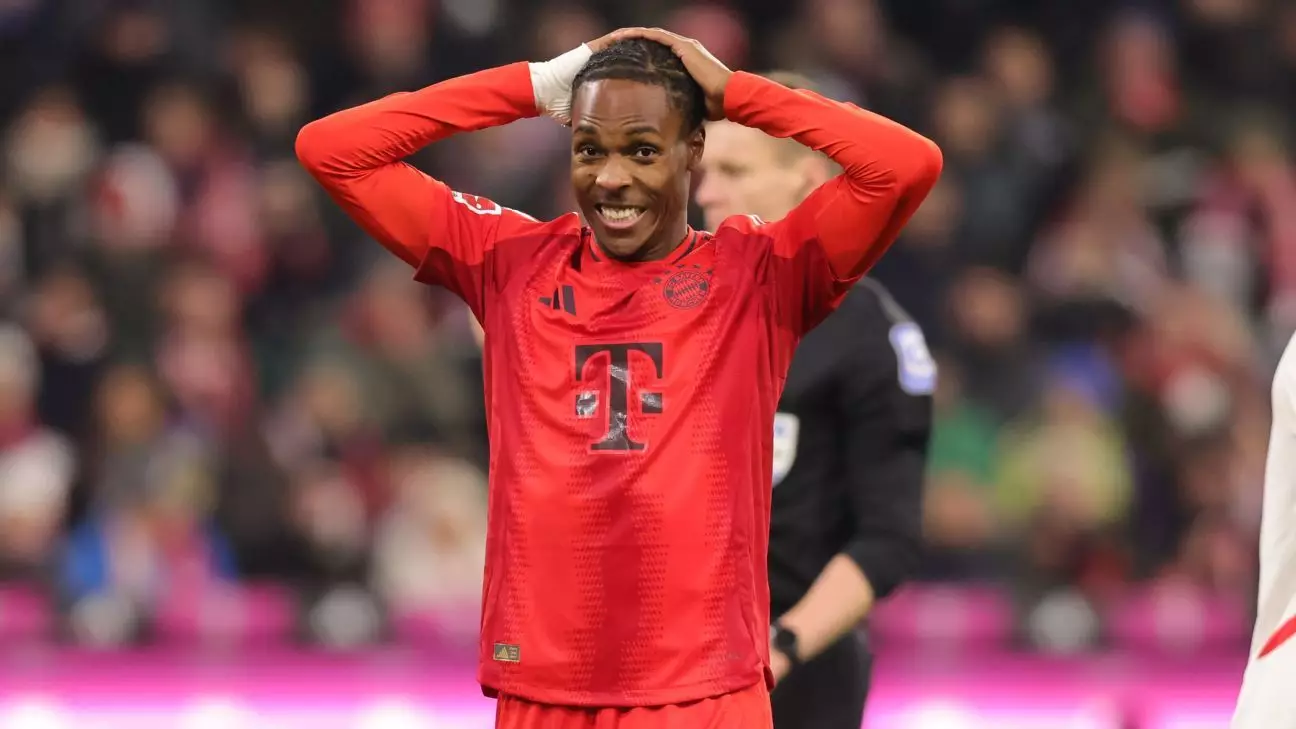Tottenham Hotspur finds itself in a precarious position as it seeks to navigate a tumultuous period marked by injuries and missed transfer opportunities. The north London club’s aspirations to strengthen their squad were dealt a severe blow recently when promising Bayern Munich forward Mathys Tel declined a move to Spurs. This decision reflects a broader trend in football—a player’s choice often shaped as much by his future prospects and available playing time as by the allure of a historic club.
Tottenham had high hopes for Mathys Tel, a 19-year-old French international who has shown immense potential. After Bayern Munich accepted Spurs’ substantial €60 million offer, it seemed an agreement was on the horizon. However, Tel’s decision to turn down the move suggests a careful consideration of his career path. With only 458 minutes of playtime this season, it appeared that Spurs could offer him a more prominent role; yet, the competition from top Premier League clubs such as Chelsea, Manchester United, and Arsenal has proven to be too enticing. Furthermore, Aston Villa’s interest indicates that alternatives abound, forcing Spurs to reassess their strategy in a highly competitive market.
The rejection highlights a critical issue facing clubs like Tottenham: the difficulty of attracting top talent when other options present more alluring prospects in terms of playing time and team success. As such, this situation raises questions about Spurs’ reputation in the transfer market, especially when a player prioritizes not just immediate opportunities but long-term potential in his choice of club.
Injury Crisis Exacerbates Transfer Needs
The injury crisis at Tottenham cannot be understated. With key players sidelined, including Guglielmo Vicario, Cristian Romero, and James Maddison, head coach Ange Postecoglou finds himself in a tight spot. To further complicate matters, recent injuries, such as a concerning knee issue for Radu Dragusin, have intensified the urgency of Tottenham’s quest for reinforcements. The infectious nature of injuries often disrupts team chemistry and performance, and with Spurs languishing in 15th place, the need for immediate solutions becomes ever more critical.
The prospect of bringing in players like AC Milan’s Fikayo Tomori may offer some hope. However, negotiations seem to be in their infancy, suggesting that Tottenham’s ability to swiftly improve its squad is limited. The pressing timeline leading up to the January transfer window intensifies the pressure on club management to deliver. Failure to do so could not only endanger the club’s season but also impact their long-term ambitions.
Postecoglou’s Leadership Under Scrutiny
Amidst these challenges, the scrutiny on Postecoglou’s leadership is growing. The club’s recent form, with only one win in the last 11 matches, raises concerns about the effectiveness of his tactics and strategies. While he has openly acknowledged the need for reinforcements, this period serves as a litmus test for his capacity to manage under pressure and adapt to the mounting challenges facing his squad. His comments about the timeline for player returns suggest a measured approach, yet there is a fine line between patience and urgency in a results-driven environment like the Premier League.
Furthermore, Postecoglou’s ability to inspire confidence among both players and fans will be pivotal in navigating this challenging period. The upcoming match against Brentford represents not just an opportunity to salvage some much-needed points but a chance to restore faith in his methods and vision.
As the club looks ahead, the ramifications of Tel’s decision, ongoing injuries, and scrutiny of Postecoglou’s leadership will indeed cast long shadows over the club’s ambitions. The January transfer window is a critical juncture; Spurs must act decisively to rebuild their squad and start securing much-needed points to climb the Premier League table.
Tottenham Hotspur’s current situation exemplifies the intricate nature of football management, where every decision—whether it’s a transfer negotiation or injury management—can have significant consequences. If Spurs wish to regain their competitive edge, a well-thought-out strategy is essential, as the strength of their squad could very well dictate the trajectory of their season and beyond.

